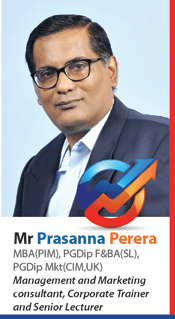The Power of saying no: Prioritising without guilt
View(s):
Introduction
In today’s workplace, multitasking and accepting additional responsibilities are often hailed as commendable traits. However, this culture of compliance can dilute the value you deliver. Each unnecessary task you accept detracts from your ability to focus on what truly matters. While saying “no” may feel rebellious, professionals can break free from this cycle by redefining their priorities with conviction and clarity. Emphasising strategic decision-making over mere compliance enables individuals to contribute more effectively to their teams without guilt or fear of judgment, ultimately fostering a healthier and more productive work environment.
The Courage To Prioritise Yourself – In the workplace, saying “no” is often perceived as rebellious, yet it is essential for maintaining focus and productivity. Recognising that your time and energy are limited resources is crucial. Embracing the ability to say “no” helps you avoid burnout and mediocrity. Prioritising yourself is not selfish; it ensures you can deliver your best work and remain a sustainable contributor to your team. Protecting your well-being enhances your professional contributions and paves the way for long-term success.
The Psychology Of Guilt – Guilt often arises as an emotional response to perceived failures or feelings of rejection, particularly in professional settings. When faced with the need to decline requests, you may grapple with guilt stemming from an internalised belief that you must always be available. Understanding the roots of this guilt enables you to navigate your feelings more effectively and helps you make decisions that align with your true values. This awareness fosters a healthier work-life balance and underlines the importance of prioritising your needs.
Develop A Personal Mission Statement – A personal mission statement serves as a guiding principle in your decision-making process. By clearly articulating your core principles and objectives, you create a framework to evaluate and address incoming requests effectively. When faced with a decision, ask yourself whether the request aligns with your mission; if it does not, saying no becomes significantly easier. This clarity empowers you to make choices that reflect your priorities and fosters a sense of purpose in both your personal and professional life.
The Power Of Setting Boundaries – Establishing clear boundaries is an effective way to communicate “no” before the need even arises. By proactively setting expectations regarding your availability and workload, you create an environment where others respect your limits. Implementing silent boundaries serves as a subtle yet powerful strategy for prioritising tasks without confrontation. This proactive approach enhances productivity while reinforcing your professional integrity and personal well-being.
Detaching From People-Pleasing – Detaching from the habit of people-pleasing can be transformative. Often, saying “no” feels daunting due to an ingrained desire to satisfy others. However, this tendency can undermine your career progression. Recognising that your worth is not defined by the number of tasks you undertake but rather by the value you contribute is essential. Prioritising your needs over external expectations is liberating and vital for achieving long-term success.
Recognising The Illusion Of Reciprocity – Many professionals hesitate to decline requests, fearing it may harm relationships or diminish future assistance. However, this concern is often misplaced. Healthy workplace dynamics are founded on mutual respect rather than unilateral sacrifice. By establishing clear boundaries, you not only protect your time but also encourage others to prioritise their own responsibilities. Embracing the ability to say “no” fosters a culture of respect and collaboration, ultimately enhancing professional relationships.
Challenging The Myth Of Endless Capacity – The belief in endless capacity often leads professionals to struggle with the ability to say “no.” It is vital to understand that this notion is a myth; even the most skilled individuals have limits. Acknowledging and honouring these limits is not a sign of weakness but a testament to self-awareness. Embracing your boundaries allows you to prioritise effectively, manage your workload, and maintain your well-being. Recognising your capacity is a strength that enhances your professional growth.
Practicing Assertive Communication – To convey your message effectively, particularly when saying no, practice assertive communication. The way you communicate, both through words and body language, greatly affects how your message is understood. Maintain steady eye contact and adopt a confident posture to project assurance. Speaking clearly and deliberately reinforces your stance. Mastering these elements of communication enhances your assertiveness and helps you articulate your boundaries with clarity and professionalism.
Understanding The Ripple Effect – Recognising the ripple effect of your decisions is crucial for maintaining a healthy workplace environment. By saying yes to every request, you risk experiencing burnout, which can adversely impact not only your well-being but also your team’s performance. Prioritising your health sets a powerful example, encouraging colleagues to do the same. This approach fosters a culture of balance and support, promoting a more productive and harmonious workplace for everyone.
Managing Upward Expectations – Managing expectations from superiors is essential when it comes to saying “no.” While it may seem daunting, framing your refusal in terms of mutual benefits can be effective. Highlight the significance of focusing on tasks that have the greatest impact to guarantee their timely completion. Additionally, suggest alternative approaches that support your superior’s objectives. This approach showcases your professionalism and fosters a culture of respect and collaboration, ultimately enhancing your working relationships.
Building A Reputation For Strategic Decision-Making – Cultivating a reputation for strategic decision-making is vital for your professional journey. When you thoughtfully and strategically say “no,” you position yourself as perceptive and reliable. By prioritising quality over quantity, you become someone who delivers authentic value rather than merely completing tasks. This reputation enhances your credibility and enables you to decline requests without jeopardising relationships, fostering trust and respect among colleagues.
Conclusion
Saying “no” at work is not an act of defiance but a demonstration of self-respect and professional empowerment. This conscious decision allows you to focus on what truly matters, safeguarding your well-being while striving for excellence rather than settling for mediocrity. By mastering the art of prioritising without guilt, you redefine your professional value, signalling that your time and energy are limited resources to be strategically invested. Each “no” transforms into a “yes” for meaningful contributions and personal growth, ultimately fostering a more productive and fulfilling work environment.
HitAd.lk is the best and biggest mobile phone market in Sri Lanka, and we guarantee you will find what you need here from our extensive listing of mobile phones for sale in Sri Lanka. Whether it’s a budget-priced smartphone for communication, or higher end features with advanced connectivity, there are many different options from which to choose from on our site!


